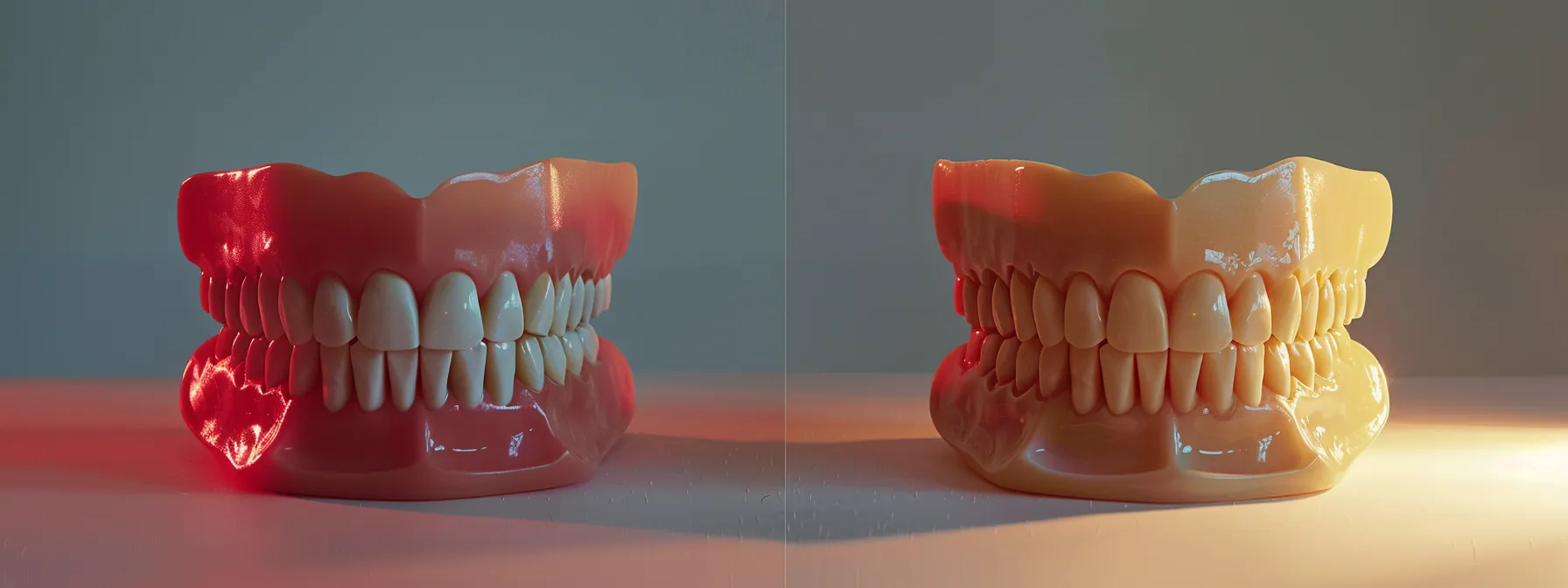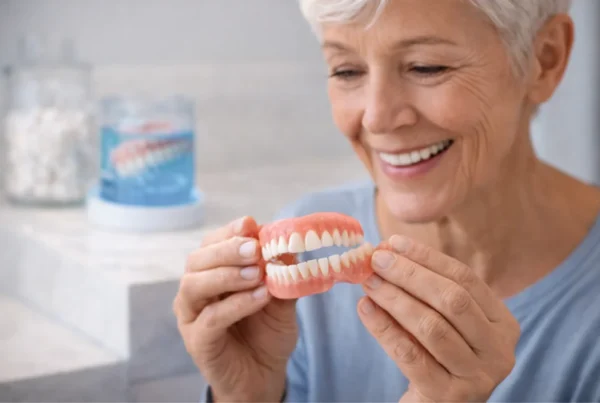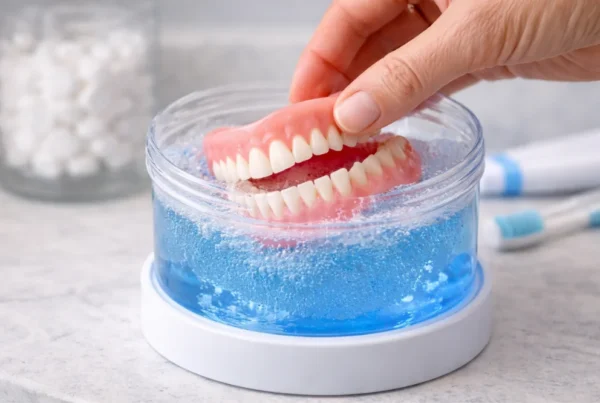Are you struggling with missing teeth and unsure whether complete dentures or partial dentures are the right option for you? Many individuals face this dilemma as they seek solutions for restoring their smile and improving oral function. This article will help you understand the benefits of complete dentures, explore the features of partial dentures, and highlight the key differences between the two. By engaging with this content, readers will gain insights to make informed decisions about their dental health, addressing challenges such as discomfort and difficulty with daily tasks like brushing. Let’s find out which denture option suits your needs best.
Learn About Complete Dentures and Their Benefits
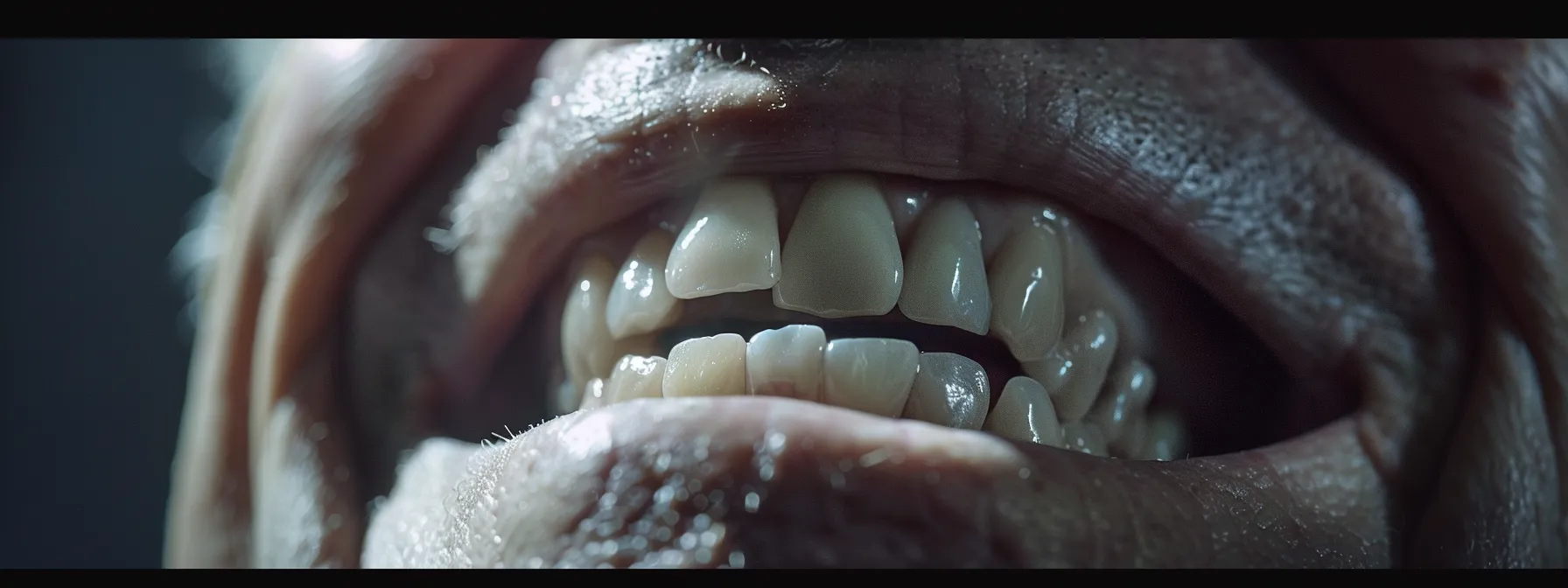
Complete dentures are prosthetic devices designed to replace all missing teeth in the upper or lower jaw. For patients facing extensive tooth loss due to injury or dental issues, these dentures provide significant advantages, including improved chewing function and enhanced appearance. Ideal candidates typically include those unable to maintain their natural teeth. Financing options can ease the cost concerns for many owners looking to restore their smiles.
Definition of Complete Dentures
Complete dentures are removable prosthetic devices that serve as a replacement for all missing teeth in either the upper or lower jaw. These devices are custom-made to fit the unique contours of an individual’s mouth, providing both functional and aesthetic benefits. Proper hygiene practices are essential to maintain the longevity of complete dentures, as daily cleaning and regular dental visits can prevent issues such as discomfort or infections and help patients achieve a natural appearance.
Patients who opt for complete dentures often face challenges due to extensive tooth loss caused by factors such as injury or neglected dental care. These dentures can restore chewing ability and improve speech, significantly enhancing one’s quality of life. Those interested in complete dentures should consult a dental professional to discuss their options and may benefit from sedation techniques for added comfort during the fitting process. Making an appointment with an orthodontics provider also aids in ensuring that individuals receive comprehensive care tailored to their specific needs.
Advantages of Complete Dentures
One significant advantage of complete dentures is their ability to restore jaw functionality effectively. With all missing teeth replaced, patients can regain the ability to chew food properly, which is essential for maintaining a balanced diet. This not only supports overall health but also aids in the proper alignment of the tongue during speech, improving communication and confidence. Dental services that focus on complete dentures prioritize fitting these prosthetics to ensure optimal performance and comfort.
Complete dentures also offer aesthetic benefits that enhance a patient‘s appearance. They help fill out the facial contours that often diminish with tooth loss, creating a more youthful look. Proper dental care, including routine visits, ensures that the dentures fit well and maintain their natural appearance over time. For those contemplating crown lengthening or other dental procedures, complete dentures provide a robust solution that blends seamlessly with the surrounding oral structures, enhancing both function and visual appeal.
Ideal Candidates for Complete Dentures
Individuals who are ideal candidates for complete dentures typically have extensive tooth loss that prevents them from maintaining proper oral function. Underlying conditions such as gum disease or severe tooth decay may necessitate these restorations, especially if remaining teeth cannot be preserved. For these patients, complete dentures can alleviate pain and discomfort associated with missing teeth while restoring the ability to chew and speak effectively.
Another important consideration is the patient‘s commitment to maintaining good oral hygiene practices. Those who opt for complete dentures must be willing to follow a consistent oral care routine, which includes daily cleaning and regular check-ups with a dental professional. This ongoing therapy not only ensures the longevity of the dentures but also supports overall oral health, allowing patients to enjoy the many benefits of their new dental function comfortably and confidently.
Financing Options for Complete Dentures
Financing options for complete dentures can greatly assist individuals concerned about the costs associated with cosmetic dentistry. Many dental offices offer flexible payment plans, allowing patients to spread the expense over time. Additionally, dental insurance may cover part of the cost, particularly if treatment is deemed necessary due to tooth decay or other oral health issues. Patients are encouraged to inquire about any available financing programs that can ease the financial burden while ensuring access to essential teeth cleaning and care.
For those considering complete dentures, understanding payment methods is crucial in making informed decisions about their oral health. Some practitioners provide discounts for upfront payments, while others may accept third-party financing services that specialize in dental care. By exploring these options, patients can find solutions that cater to their financial situation without compromising their ability to maintain healthy gums and overall oral function. Consulting with a dental professional can help clarify these choices and guide individuals toward achieving both functionality and aesthetic satisfaction with their dentures.
Explore Partial Dentures and Their Features
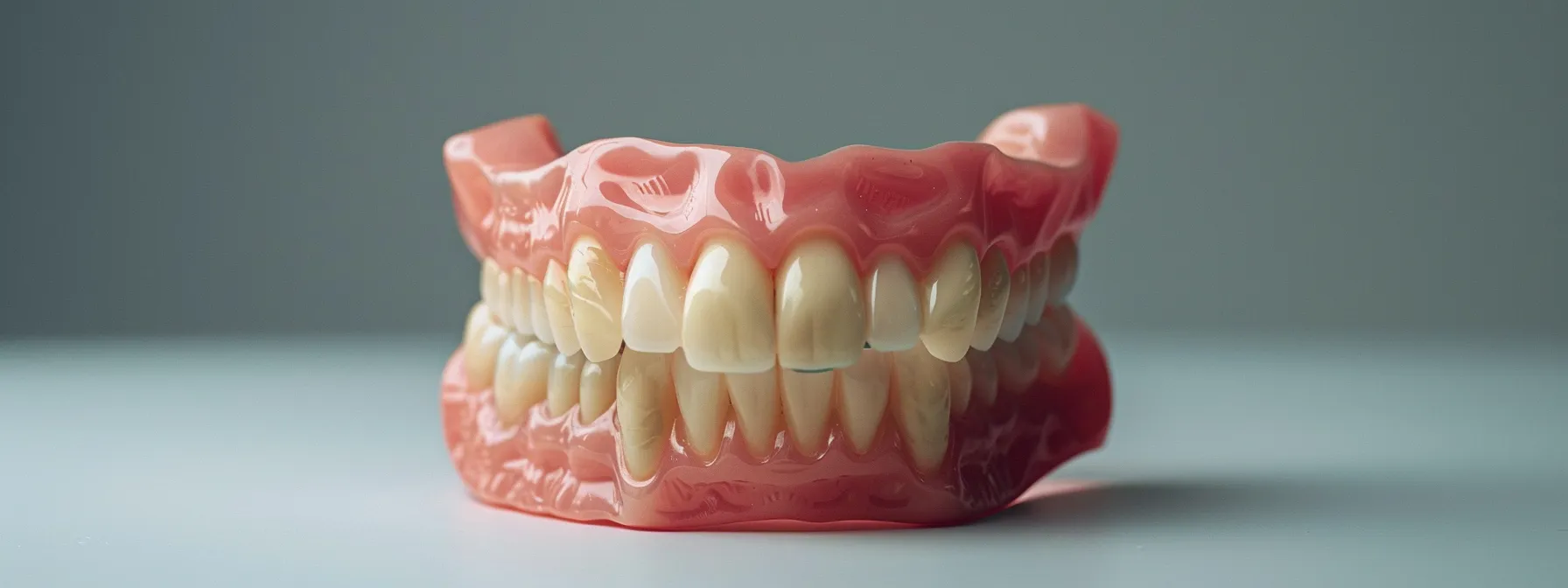
Partial dentures are removable dental devices designed to replace missing teeth while preserving existing ones. Patients choosing partial dentures benefit from enhanced chewing function and improved speech, while also maintaining a natural appearance. Individuals with gaps in their smiles due to tooth loss and a commitment to good oral hygiene should consider partial dentures. Proper care, including the use of a suitable cleanser and regular dental check-ups, is essential for their longevity.
What Are Partial Dentures?
Partial dentures are dental appliances designed to replace one or more missing teeth while preserving the existing ones. They typically consist of a framework that sits on the roof of the mouth or along the arch of the gums, providing support for artificial teeth or crowns. By filling in gaps, these dentures enhance chewing ability and contribute to speech clarity, making them a practical solution for those looking to restore their smile.
These removable dentures come in various designs tailored to fit the specific needs of each patient, depending on the location and number of missing teeth. Maintaining proper care for partial dentures is essential, as it involves regular cleaning and scheduled check-ups with a dental professional to ensure they function effectively over time. With the right approach to oral hygiene, individuals can enjoy the benefits of partial dentures, including improved appearance and enhanced oral functionality.
Benefits of Choosing Partial Dentures
One of the primary benefits of choosing partial dentures is their contribution to improved chewing function and overall confidence. These prostheses allow individuals to enjoy a wider variety of foods, promoting better nutrition and supporting digestive health. Patients who wear partial dentures often report feeling more comfortable and assured in social situations, as the devices help restore their smiles and speech clarity.
Additionally, partial dentures can help maintain the structure of the mouth by preventing adjacent teeth from shifting into gaps left by missing teeth. This stability is crucial for long-term oral health, making regular dental visits necessary for proper care. Those considering this solution should remember to use a suitable toothpaste and follow a consistent oral hygiene routine to prolong the life of their dentures. For personalized advice, it is beneficial to schedule an appointment with a dental professional who can assess individual needs and recommend the most effective treatment options.
Who Should Consider Partial Dentures?
Individuals experiencing tooth loss but still retaining some healthy teeth may find partial dentures to be an effective solution. These prosthetics are specifically designed to replace missing teeth while preserving the integrity of existing ones. Patients should consult with a prosthodontics expert to evaluate their unique dental circumstances, as this can clarify how partial dentures can best restore their smile and support oral function.
Additionally, those seeking a less invasive alternative to dental implants may consider partial dentures. Unlike implants, which require surgical placement, partial dentures offer a removable option that can easily adapt to changes in a patient‘s dental health. As part of a comprehensive treatment plan, partial dentures not only enhance the appearance but also enable improved chewing and speaking capabilities, thereby addressing common challenges faced by individuals with tooth loss.
Maintenance and Care for Partial Dentures
Maintaining partial dentures requires a diligent oral hygiene routine to ensure their longevity and effectiveness. Cleaning should be done daily using a specialized denture cleanser to remove food particles and plaque without damaging the appliance. Regular dental check-ups are essential, allowing professionals to assess the fit and condition of the partial dentures while providing guidance on care techniques tailored to individual needs.
In addition to regular cleaning, individuals should be mindful of how they handle their partial dentures. When removing them for cleaning, it is advisable to do so over a soft surface or a towel to prevent breakage. Patients who incorporate these practices will not only extend the life of their dentures but also enhance their overall oral health and comfort, allowing them to enjoy improved functionality and appearance.
Understanding the Differences Between Complete and Partial Dentures
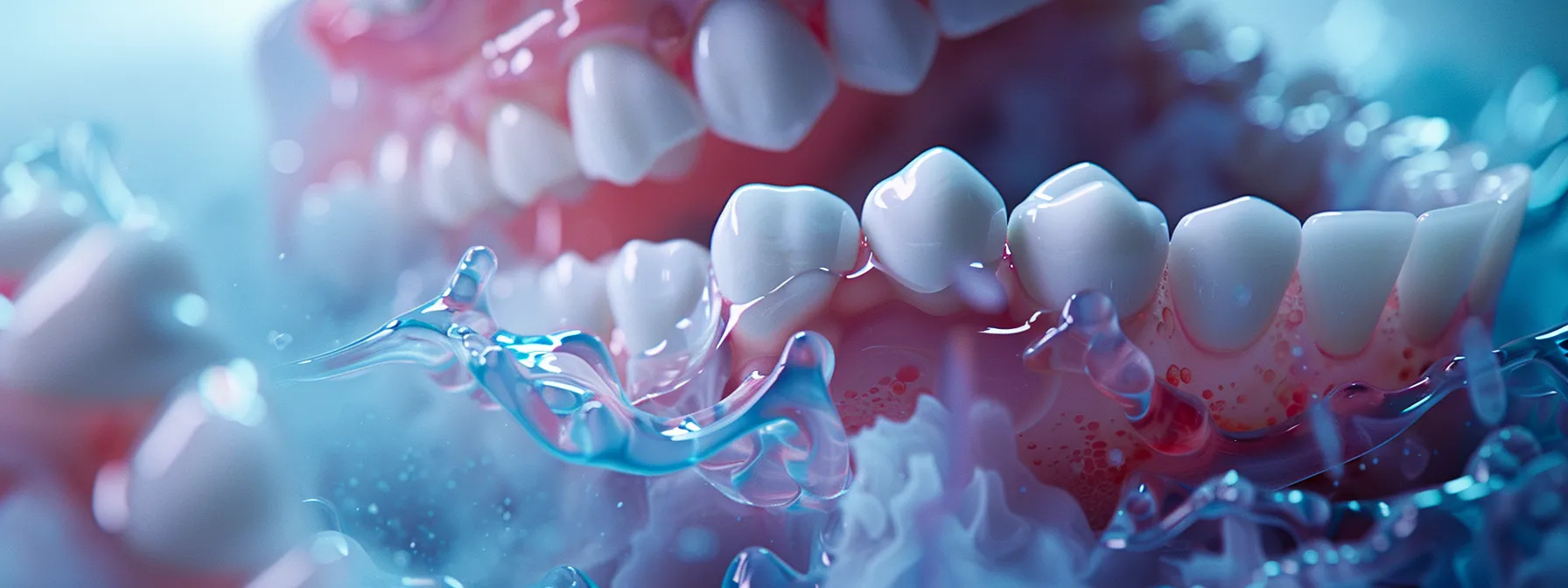
Key differences between complete and partial dentures encompass various aspects, including functionality, cost comparisons, aesthetic considerations, and longevity. Complete dentures replace all teeth, while partial dentures fill gaps left by missing teeth. Evaluating the costs associated with each type and their respective durability will help individuals make informed decisions. Understanding these factors is essential for selecting the most suitable option for restoring oral function and appearance.
Key Differences in Functionality
Complete dentures are designed to replace all teeth in either the upper or lower jaw, offering a comprehensive solution for individuals experiencing total tooth loss. This functionality allows users to regain essential capabilities, such as chewing and speaking, facilitating a return to normal dietary habits and improved communication. In contrast, partial dentures provide a targeted approach, addressing only the gaps left by missing teeth while preserving the remaining natural teeth, ensuring that oral functionality is optimized without impacting other healthy structures.
When comparing the two, it is clear that complete dentures require an adaptation period, as individuals must learn to navigate their new prosthetics entirely. Conversely, partial dentures often involve less adjustment, as they work alongside natural teeth. Individuals should consider their unique situations when choosing between these options, taking into account factors like the extent of tooth loss, comfort levels, and the need for effective oral function in their daily lives.
Cost Comparisons for Both Types
When considering the cost of complete versus partial dentures, individuals often find that complete dentures generally carry a higher price tag due to the extensive customization and fabrication required to replace an entire set of teeth. In many cases, the total expense can range significantly based on factors such as the materials used and any additional procedures needed prior to fitting, such as tooth extractions. Those exploring complete dentures should consult with their dentist to understand the specific financial implications related to their situation and any potential insurance coverage available.
Partial dentures typically present a more budget-friendly option, especially for patients who still retain some healthy teeth. The cost can vary based on the specific design chosen and the complexity of the dental issues being addressed. Patients may find that partial dentures can be a more accessible solution that allows them to maintain oral functionality at a lower investment, making it important to discuss financing options with dental providers to ensure affordability while restoring their smiles.
Aesthetic Considerations
Aesthetic considerations play a vital role in the decision-making process when choosing between complete and partial dentures. Complete dentures are designed to replicate the appearance of a full set of natural teeth, effectively restoring facial contours that may have changed due to tooth loss. This can lead to enhanced confidence, as individuals often feel more comfortable smiling and engaging in social interactions when their dentures closely resemble their natural teeth.
On the other hand, partial dentures focus on filling gaps left by missing teeth while preserving the remaining natural teeth. This allows for a more seamless blend with the existing dental structures, creating a balanced and natural appearance. Patients often appreciate this option for its aesthetic benefits, as well as its ability to maintain the integrity of their smile without the drastic changes that complete dentures might introduce.
Longevity and Durability
The longevity and durability of dentures play a crucial role in a patient‘s overall satisfaction with their dental restoration. Complete dentures typically last around five to ten years with proper care, while partial dentures may have a slightly longer lifespan depending on the materials used and how well they are maintained. Regular check-ups with a dental professional help ensure that the dentures remain in good condition, allowing for timely adjustments or replacements as needed.
Seek Professional Guidance for Your Choices
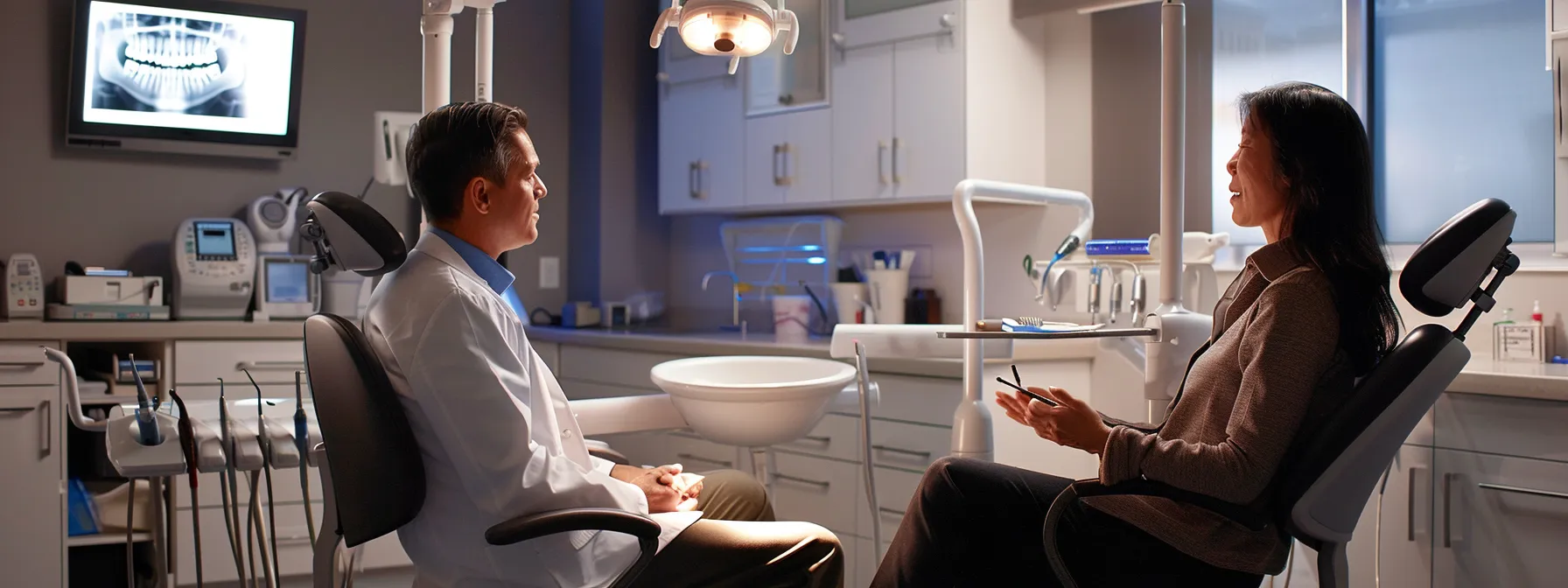
Consulting a dental specialist is essential when deciding between complete and partial dentures. Patients should prepare questions for their dentist about treatment options, costs, and maintenance. Finding local dentists experienced in denture fittings can streamline the process. During the consultation, patients can expect a thorough assessment and personalized recommendations based on their unique dental needs.
Importance of Consulting a Specialist
Consulting a dental specialist is vital when considering complete or partial dentures. Their expertise helps individuals understand the specific benefits and considerations of each option, tailored to their unique dental needs. A thorough evaluation from a prosthodontist or general dentist ensures that patients receive personalized recommendations, enhancing the chances of successful adaptation to their new dental restorations.
Furthermore, a dental professional can guide patients through the care and maintenance required for both complete and partial dentures. This guidance fosters better oral hygiene practices, ultimately prolonging the lifespan of the dentures and maintaining overall oral health. Engaging with a specialist addresses any concerns or questions, empowering individuals to make informed decisions about their dental care and restoration options.
Questions to Ask Your Dentist
When consulting with a dentist about complete versus partial dentures, patients should inquire about the specific advantages and disadvantages associated with each option. Understanding how each type of denture fits an individual’s oral health needs can play a critical role in making an informed decision. Questions regarding the expected lifespan, comfort level, and maintenance requirements of both complete and partial dentures will help address any concerns and guide patients toward the best solution for their unique situation.
Additionally, patients should discuss any financial implications related to their denture options with their dentist. Asking about potential insurance coverage, financing plans, and the overall costs associated with both complete and partial dentures can alleviate concerns about affordability. By engaging in this conversation, patients can gain clarity on their choices and ensure they select a denture solution that meets their functional and aesthetic requirements while remaining within their budget.
How to Find Local Dentists for Dentures
Finding local dentists for dentures starts with conducting an online search for dental professionals specializing in restorative and prosthetic dentistry. Utilizing search engines and directories can help individuals locate qualified practitioners nearby. Additionally, reading patient reviews and checking ratings can provide insight into the dentist’s expertise, patient care, and experience with complete and partial dentures.
Personal recommendations also play a vital role in the selection process. Individuals can ask friends, family, or their general practitioners for referrals to trusted dental specialists. This direct approach often leads to finding a provider who meets specific needs and expectations, making the journey of choosing between complete and partial dentures more manageable and informed.
What to Expect During Your Consultation
During a consultation for complete or partial dentures, patients can expect a thorough examination of their oral health. The dentist will assess the condition of their existing teeth, gums, and bone structure, discussing any underlying issues that may impact the choice of dentures. This allows the dental professional to recommend the most suitable option tailored to the individual’s specific needs and lifestyle.
Patients should also be prepared to discuss their expectations and preferences regarding functionality and aesthetics. The dentist may provide insights on what to expect from both complete and partial dentures, including lifestyle adjustments, maintenance requirements, and potential costs. Engaging in this open dialogue ensures that patients feel informed and comfortable with their decision, ultimately leading to better outcomes in their dental restoration journey.
Patient Experiences and Testimonials on Dentures

Real-life success stories from patients who have chosen either complete or partial dentures highlight the transformative impact these solutions can have on daily life. Common concerns, such as comfort and fitting, are frequently addressed through insights shared by dental professionals, ensuring patients feel supported. The overall improvement in quality of life remains a central theme as individuals adapt to their new dental solutions.
These narratives provide valuable perspectives on the benefits and challenges associated with each type of denture, guiding future decisions for those considering similar options.
Real-Life Success Stories
Many individuals have shared their positive experiences after transitioning to dentures, highlighting how both complete and partial options have significantly improved their quality of life. For instance, a patient who lost all her teeth due to dental decay reported that complete dentures restored her ability to enjoy favorite foods and boosted her confidence when socializing. By sharing her journey, she emphasizes the importance of customization in ensuring comfort and functionality with complete dentures.
Another patient, who had several healthy teeth remaining, found that partial dentures provided the perfect balance of aesthetics and practicality. After struggling with gaps in her smile, she experienced a renewed sense of self-esteem, allowing her to engage more freely in conversations. Her story illustrates how partial dentures can effectively fill in spaces while preserving natural teeth, making them an excellent choice for those in similar situations.
Common Concerns Addressed by Patients
Patients often express concerns about comfort and fitting when transitioning to dentures. Many individuals worry that complete or partial dentures may feel uncomfortable or loose. To address this, dental professionals emphasize the importance of proper fittings and adjustments, which can enhance comfort. Regular check-ups help ensure that the dentures maintain a snug fit, allowing patients to enjoy daily activities without unnecessary discomfort.
Another common concern involves the impact on speech and eating habits. Patients frequently fear that dentures might hinder their ability to speak clearly or enjoy their favorite foods. Dentists provide practical advice and training to ease this transition. With practice and patience, many individuals find that their speech improves and that they can resume a normal diet, alleviating fears associated with both complete and partial dentures.
Insights From Dental Professionals
Dental professionals emphasize that choosing between complete and partial dentures should involve careful consideration of an individual’s specific dental needs and lifestyle. Many practitioners recommend scheduling a thorough assessment, which enables them to offer tailored advice based on each patient‘s oral health status. Insights from experienced dentists reveal how proper fitting, regular adjustments, and consistent follow-up appointments play critical roles in ensuring satisfaction and comfort with either type of denture.
Impact on Quality of Life
Individuals who transition to complete or partial dentures often report significant improvements in their quality of life. For example, those with complete dentures find that their ability to eat their favorite foods returns, which enhances their enjoyment of meals and social gatherings. Similarly, patients with partial dentures often express newfound confidence in smiling and engaging in conversations, as their smiles look more complete and natural.
The positive impact of dentures extends beyond aesthetics. Many patients highlight how improved oral functionality allows them to participate in activities they once avoided due to embarrassment over tooth loss. Whether through enhanced chewing ability with complete dentures or maintaining existing teeth with partial options, patients experience a boost in self-esteem and overall satisfaction, leading to more fulfilling personal and social interactions.
Prepare for Your Journey With Dentures
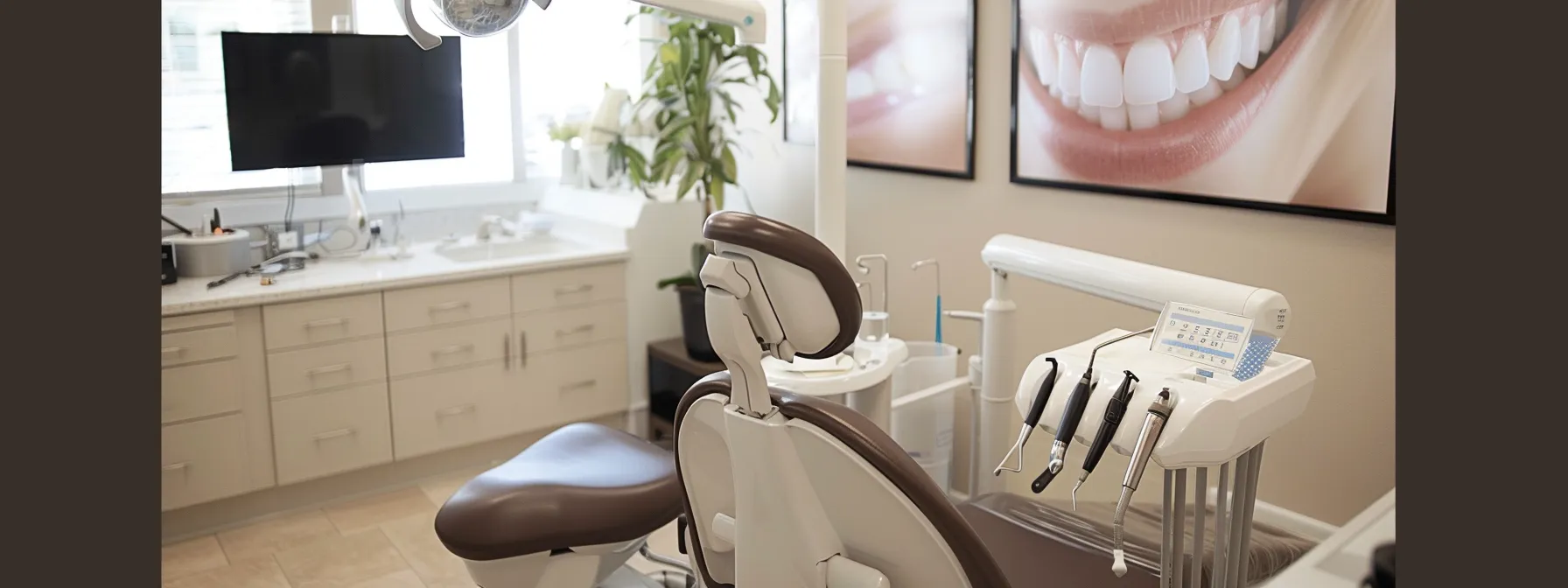
After deciding between complete and partial dentures, individuals should focus on initial steps such as scheduling fittings and understanding post-placement care. This involves adjusting to new dentures and addressing any discomfort. Long-term maintenance tips will ensure optimal performance and comfort, while resources for ongoing support provide valuable guidance throughout the denture journey.
Initial Steps After Decision-Making
After selecting the appropriate type of dentures, whether complete or partial, it is essential for individuals to schedule a fitting appointment with their dental professional. At this appointment, the dentist will take precise measurements and impressions of the mouth to ensure that the dentures will fit comfortably and function effectively. This step is crucial as it lays the foundation for creating a custom prosthetic that meets the specific needs of the patient, addressing any concerns regarding appearance or functionality right from the start.
Following the fitting, patients should prepare for an adjustment period as they become accustomed to their new dentures. During this time, it is important to follow the dentist’s instructions regarding care and maintenance practices, which may include specific cleaning routines and dietary recommendations. Staying proactive and communicating any discomfort or fitting issues to the dental professional can significantly enhance the overall experience, ensuring that individuals enjoy improved oral function and a renewed sense of confidence in their daily lives.
Post-Placement Care and Adjustments
After receiving complete or partial dentures, proper post-placement care is essential for ensuring long-term comfort and functionality. Patients are advised to follow their dental professional’s instructions regarding cleaning routines and dietary adjustments to facilitate a smooth transition. For instance, using a gentle cleanser specifically designed for dentures helps maintain their appearance and integrity, while avoiding hard or sticky foods in the initial days can prevent discomfort.
Additionally, regular follow-up appointments play a critical role in monitoring how well the dentures fit over time. Patients should communicate any discomfort or changes in the fit to their dentist, as timely adjustments can significantly enhance the overall experience and comfort level. By staying engaged in their post-placement care and consultations, individuals can optimize the performance of their complete or partial dentures, helping to restore their confidence and quality of life.
Long-Term Maintenance Tips
Maintaining complete or partial dentures requires a consistent cleaning routine to ensure longevity and optimal performance. Patients are encouraged to use a gentle denture cleanser daily to remove food particles and prevent plaque buildup. Regular visits to a dental professional for check-ups and adjustments are crucial, as they can identify any fitting issues early and provide tailored advice for care.
Alongside daily cleaning, patients should adopt a mindful approach to their eating habits, particularly during the initial transition period with new dentures. Avoiding hard, sticky, or very hot foods can help prevent discomfort and maintain both the integrity of the dentures and the health of the gums. Effective communication with dental practitioners about any changes in fit or comfort further aids in ensuring long-term satisfaction with complete or partial dentures.
Resources for Ongoing Support
Accessing ongoing support is vital for individuals navigating their new lifestyle with complete or partial dentures. Dental offices often provide resources, including patient education materials, which cover essential topics like proper cleaning techniques and dietary guidelines to ensure the longevity of the dentures. Furthermore, many practitioners offer workshops or seminars focusing on adjusting to new dental appliances, addressing common concerns such as comfort and fit.
In addition to professional resources, online forums and support groups can serve as valuable platforms for sharing experiences and tips among denture wearers. These communities offer advice on managing daily challenges, enhancing confidence, and optimizing oral health routines. Seeking out both professional and peer support allows individuals to feel more empowered and informed, facilitating a smoother transition towards embracing their new dentures.
Conclusion
When choosing between complete and partial dentures, understanding individual needs is vital for optimizing oral health and functionality. Complete dentures offer a solution for total tooth loss, while partial dentures preserve remaining teeth and enhance aesthetics. Consulting a dental professional ensures personalized guidance on the most suitable option, financing plans, and maintenance practices. Making an informed decision not only restores smiles but also significantly improves confidence and overall quality of life.
What are you waiting for? Book an appointment with Grand Prairie, TX’s top dentist, Dr. Khademazad, today. It’s the first step to a better smile and increased self-esteem. Act quickly to enjoy a beautiful, straight smile without the pain of traditional braces. Call us at 972-988-0900.
Schedule Your Consultation Today!
Grand Prairie Family Dental
2475 W Pioneer Pkwy Grand Prairie, Texas, 75051 Driving Directions


